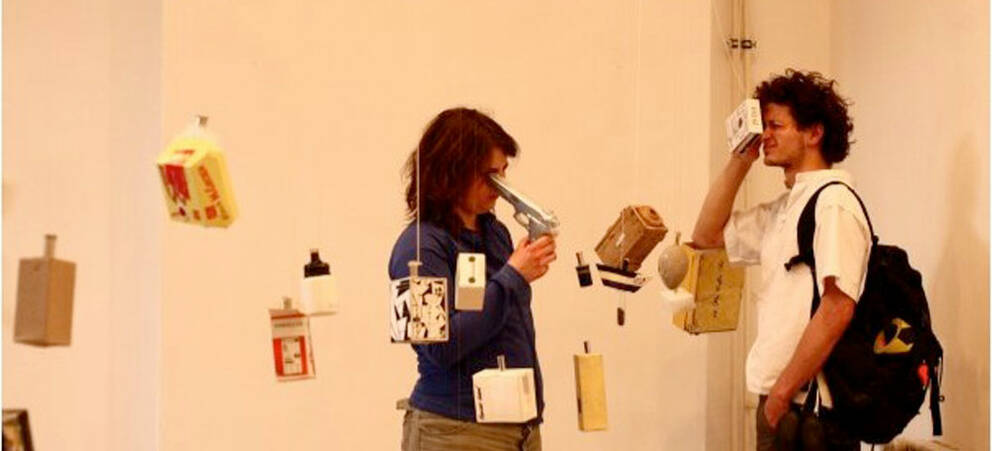
Nomad Dance Institute – Co-teaching
Co-teaching is an educational format that presupposes a teaching act as a learning act, that provides multiperspectivity and asymmetrical organization of teaching processes and allows (re)active teaching and learning experiences. It abolishes the borders between theoretical and practical subjects and demands reflective teaching practice in educational processes.
It is a way of transferring knowledge with two, three or more teachers teaching at the same time dance training or a workshop. Rules of Co-teaching are specified through a score that is adaptable to specific situation, students and intention of the work to be done. Score might include time, goal of the class, number of teachers, specific words to be used and other information that frame the experience as informative but also fun and playful. It is up to the teachers how they are going to frame the score and who frames it.
The main idea is to enable teachers to experience their teaching practice in correlation to other teachers and their methods and therefore get instant feedback on their doing. In that way they learn instantly and have a possibility to shift their practice on the spot.
Besides that, teachers experience and work on shifting the authority and power of deciding. They are able to propose ideas or information they feel were missing in the previous teaching, to comment on the experience just lived through by offering a new one, etc. Students get a chance to study the same topic through a prism of different perspectives.
Since every class is based on a pre-thought score, the very process of teaching becomes also a research of the score by improvisation, by exercise in being present, allowing interrupting but also allowing listening and letting it happen. The name of teaching suggests a co-existence of ideas, teaching methods and views on what contemporary dance is or should be. The research and involvement in Co-teaching demands of everyone involved openness to try out and fail, to share their knowledge and be ready to shift perspectives.
The teachers are of mixed experience and dance/theoretical background, therefore multiperspective towards contemporary dance is inherent to the method. The idea of the first Co-teaching event was to “invade” already existing teaching situations in Ljubljana and Zagreb. In Ljubljana that was Fičo Trainings and classes at high school for contemporary dance while in Zagreb these were trainings organized at TALA Dance Centre.
The core group of CoTeachers are Gisela Mueller, Gregor Kamnikar, Rok Vevar and Dejan Srhoj. They were joined by Goran Bogdanovski and Jasmina Založnik in Ljubljana and Tamara Curić, Iva Nerina Sibila and Maja Drobac in Zagreb. On May 30 & 31 two workshops were held that were based on the conclusions of the residency. The outcome was better than good. The attendants of this workshop provided an excellent feedback to the leaders.
Performance Situation Room / Ex - Folk Dances activity in Ljubljana May 24-29 2015
Meeting of Gisela Müller and Dragana Alfirevic/discussion and workshop
Performance Situation Room / Ex Folk Dances, in Skopje, February 8 – 11, 2016
Meeting of Gisela Müller, Dragana Alfirevic and Biljana Tanurovska Kjulavkovski. During this meeting they developed a concept that can be applied from the several researches they did related to the Community/ folk Dances and bringing communities through dance together.
SITUATIONS is an attempt to apply their principles of how they work within their contemporary dance practice into a dance or a structure which could be open to everyone of any age, where all kinds of people can dance/be together and share the pleasure of moving/choreographing. Until now they worked under the project title Folkdance, which started during their first meeting in Skopje, transformed now into the name “Situations”, which might be much closer to where their interests lie; On how social moments work and how they can restructure or find new structures that allow an open space for people to connect, to exchange and to communicate rather than making a deep research on Folkdance.
They see their collaboration going in the direction of a specific exchange on the level of contributing to the local contexts and inviting artists to challenge and change the existing modes of operation, presentation and communication.
